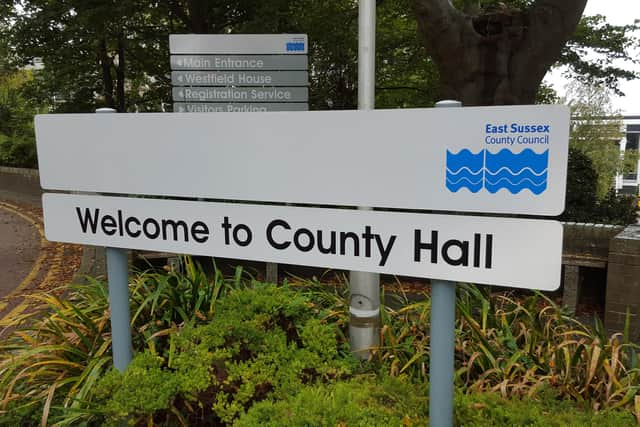Scrutiny meetings to be webcast at East Sussex County Council
and live on Freeview channel 276
On Friday (July 23), county councillors voted in favour of a motion put forward by Liberal Democrat councillor John Ungar calling on the authority to broadcast its place and people scrutiny committee meetings.
Cllr Ungar had put forward a very similar motion in 2018, but it was defeated in the face of opposition from other councillors, including the council’s Conservative leadership.
Advertisement
Hide AdAdvertisement
Hide AdBut when the motion was discussed at a governance committee meeting earlier this month, Conservative council leader Keith Glazier indicated that his party’s position on the matter had changed.


Speaking at the full council meeting, Cllr Glazier said: “Our view generally was that, due to covid and the broadcasting of meetings, it would be difficult not to continue with that.
“I think we did add a caveat that we would review it after 12 months, but the committee eventually voted in favour of this although I know there was a member at least who was against.”
This position was welcomed by Cllr Ungar, who argued it would open the council’s decision-making up to more people.
Advertisement
Hide AdAdvertisement
Hide AdHe said: “It will really open the window for people to the work of the council, cross-party [and] not necessarily party political, in getting to the bottom of things.
“An example was about the ongoing recruitment in social care. That scrutiny review was so interesting and put a good finger on what the issues were. I was amazed at the amount of work that goes on in this council and outside the council in trying to recruit people into care services.
“I’m sure the public will be very interested in that.”
Not all councillors were in support of the proposals, however, with the Labour group’s Godfrey Daniel reaffirming his objections from the 2018 motion.
Cllr Daniel said: “You could write the minutes of this meeting, and they probably already have been written) now. It wouldn’t be a problem; you already know the result. This [full council meeting] is a piece of theatre, where people play their roles. The cabinet is the same.
Advertisement
Hide AdAdvertisement
Hide Ad“Scrutiny is the chance of discussing things openly and with candor. If you want to get totally open views explaining the problems from officers then it is probably better not to webcast it, so that they don’t feel like they might get into trouble if it got into the public domain. It’s the same for members.”
He added: “Scrutiny reviews come to cabinet. There is a debate at every cabinet on every scrutiny review, which is then webcast. It then goes to full council. It happens automatically.
“All the scrutiny reviews will be webcast, so it is complete nonsense really to say the public haven’t got the access. The access is totally there for you.”
Cllr Daniel also took the opportunity to criticise Eastbourne Borough Council (of which Cllr Ungar was previously a member) for not regularly webcasting any of its meetings.
Advertisement
Hide AdAdvertisement
Hide AdIn response, Cllr David Tutt (who is both that authority’s leader and a Lib Dem county councillor) said the borough council was moving towards doing so.
Despite Cllr Daniel’s concerns, he was the only councillor to vote against the motion when it was put to members.
“It was close”, he said.
After the meeting, Cllr Ungar said: “As Liberal Democrat councillors we believe that we are accountable to the public.
“Scrutiny meetings are an opportunity to review council policy and services. This is a cross-party opportunity to take an in-depth look at areas of concern raised either by councillors or by members of the public if issues are clearly wide-spread across the county.
“They can act as a positive opportunity to improve our services as well as to challenge where appropriate and to hold the Cabinet decision makers to account.”